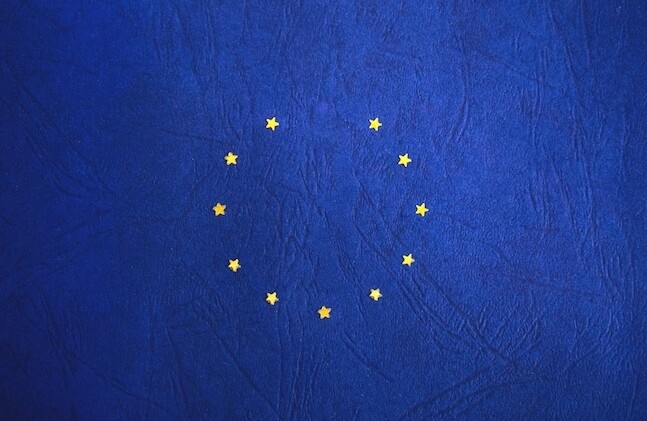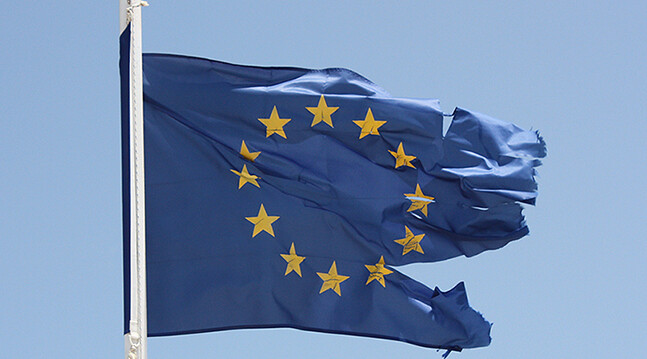It was the irony of ironies that I was in Greece on the day of the Brexit vote; one could almost feel the question in the air: "Wasn't this our script?" The shock was palpable then, and now, two weeks on, one reflects on what happened, how it happened, and what the ramifications will be for Britain and beyond.
What happened is obvious: 52 percent of eligible persons who voted on June 23 did so in favor of the United Kingdom leaving the European Union. Now, let us get one thing out of the way: a 52-48 vote is hardly a resounding outcome, but elections have been decided by less (as the United States and Al Gore in particular know only too well). More relevant, and ultimately more disturbing, was the breakdown of the vote, with Scotland and Northern Ireland registering a solid "Remain" plurality, while England, and to a lesser extent Wales, voted "Leave." Some further scrutiny of the outcome in England is essential, however. The stark fact is that the UK's largest member was split along geographic lines, with the more affluent South in the "Remain" camp and, from the North Midlands on—in what we might describe as England's version of the "Rust Belt," with terminally declined industries from coal to fishing—a resounding call to "Leave."
The post-vote color-coded map of England is a sobering image indeed for the Europhiles. There is a solid yellow "Remain" blob extending from London to its exurbs, and a few desultory daubs across the rest of the country, in a vast sea of blue "Leave" territory. The latter includes large cities such as Sheffield, Birmingham, Nottingham, Derby, Bradford, and Stoke on Trent, while Leeds and Leicester, both with high immigrant population numbers, barely registered a Remain plurality. This was in dramatic contrast to Scotland, where literally no major city or electoral district voted Leave, and where the Remain plurality was typically above 60-40.
So, how did this happen? The postmortems will continue, but at least two factors seem to stand out. Ironically, in this we may see similarities between the June 23 plebiscite and the Scottish independence referendum of September 2014. First, in each case, the margin of victory was determined by the older voters—with a roughly 60-40 split. By contrast, the young (18-25, or in the case of the Scottish referendum, 16-25) voted almost three-to-one for both Scots independence and remaining in the EU. The difference—a crucial one in the EU question, since the ultimate margin was much smaller—was the fact that while a remarkable 80 percent of young Scots went to the polls in the 2014 vote, a mere 36 percent of young voters across the UK turned out on June 23—all the more remarkable because the figure for the last general election was 43 percent. Again by contrast, an estimated 81 percent of 55-64 year-olds turned out, and an impressive 83 percent of over-65s.
In this, we may espy yet one other misstep by David Cameron in this nightmarish final act of his prime ministership. In contrast to the Scots' vote, which was extended to include people of 16 and above, the government rejected this extension for the vote on Europe, thus ensuring a majority among eligible voters for the older citizens. More to the point, the rationale for younger voters in the Scottish referendum was that this was a choice for Scotland's long-term future; surely this also held true for the EU referendum?
The second factor—less quantifiable, but nonetheless real—was the shared tactic by the "No" campaigners in the Scots' vote and the "Leave" people in the Europe contest. The "shared" tactic was in fact a "scare" tactic—warnings of the loss of social service provisions: "You'll lose your pensions" was the whisper in the ear of older Scots voters in 2014, and fears for the National Health Service again, apparently, played a major role in the vote two weeks ago. In addition, we saw the ridiculous campaign promise by the "Leave" leadership to plough some 350 million UK pounds in current EU weekly "dues" into the NHS (a figure that is simply impossible; the net in "dues" is closer to 120 million)—a commitment hastily jettisoned by Messrs. Boris Johnson (former mayor of London) and Nigel Farage (head of UK Independence Party—UKIP), when, to their evident astonishment, they actually won the thing. This, along with the 400-pound beast in the room, immigration, surely was the trump card in delivering the elderly into the "Leave" camp.
In terms of consequences, the aftermath of Brexit has been part Feydeau farce, part Shakespearean tragedy. The farce lies in the "Who, us?" chaos as it became evident that no one in the "Leave" leadership—Justice Secretary Michael Gove, Boris Johnson, Nigel Farage—had the merest semblance of a plan for moving ahead from a result they did not anticipate. In a matter of days, Farage had resigned, along, of course, with Prime Minister Cameron (another case of plan deprivation syndrome). Then Johnson withdrew from the race, a victim of political regicide; another combination of farce and tragedy, as he was stabbed in the back by none other than his presumed campaign manager, Gove—et tu, Michael? Meanwhile, over at Labour Party headquarters, mutinous MPs voted by a four-to-one margin to remove their Westminster leader Jeremy Corbyn, whose support for the Remain cause was, to say the most, lukewarm (Labour MPs, on the other hand, voted Remain by 218-10).
The most profoundly tragic consequence is, of course, post-Brexit, or at least post-Brexit vote, Britain. The pound is collapsing, having fallen within a week of the vote by 10 percent against the dollar. As Mark Carney, governor of the Bank of England, put it, the UK is suffering "economic post-traumatic stress disorder." As the Financial Times' Patrick Jenkins warned in his July 2 article, "European Rivals clamor for City's role as continent's new finance hub":
Along with Frankfurt and Dublin and a long list of others from Luxemburg to Warsaw, Paris is clamoring to appeal to banks, insurance companies and asset managers for whom using the City of London as a single European hub may no longer be sensible.
But, more fundamentally and more troubling, this is a disunited kingdom, even more viscerally so than after the Scottish referendum. As a young fellow Scot put it, with the Scots' independence referendum, we failed to achieve something we wished for; here, we have lost something that young Britons have had all their lives. But beyond the English Channel (the vote reminds one of an old Little Englander joke: Channel fog-bound; Continent cut off) there is a huge potential knock-on effect—referenda in France, where Front National leader Marine le Pen has hailed Brexit and called for a vote on EU membership? Spain? Italy? Greece (Could there be any more ironic footnote to Brexit than David Cameron in Brussels being lectured on governance by Greek Prime Minister Alexis Tsipras?)? And what of Eastern Europe, where far-right nationalist governments in Poland and Hungary put the postcommunist liberal democratic polities under severe stress? As Donald Tusk, former Polish prime minister and now president of the European Council, remarked bleakly, "The specter of a breakup is haunting Europe. A vision of a federation doesn't seem to me like the best answer to it."
Finally, back to Britain. Again, it was clear from the hapless response of both sides in the referendum that neither expected this outcome. In doing so, they totally misread the public mood; this is evident in comparing the vote of Westminster MPs with that of the electorate at large. According to a BBC poll just before the vote, members were lined up 479-158 in favor of Remain-a 3-1 majority. Perhaps the most troubling symptom of the post-Brexit hangover may be that which combines a catalogue of angst factors for a working-class Leave supporter in the post-industrial north of England: for this voter, communities are in apparently terminal decline; unemployment is grotesquely higher than the average in the wealthy south; immigrants are flocking in, taking both jobs and welfare benefits (the inherent contradiction doesn't matter to this individual); he/she doesn't have any holdings in the stock market—indeed, he has no savings at all—so why should he care about macroeconomic impact? Herein surely lies the ultimate answer to the "Why Brexit?" question. In the run-up to the Scottish independence vote, the historian Simon Schama, while arguing against independence, spoke of the threat to the social contract in Britain of being "torn asunder." For much of the country—in areas of health, education, transportation—it is at least perilously frayed, and, if it is not stitched back together again, June 23 may only be the beginning of a process of national unraveling.


